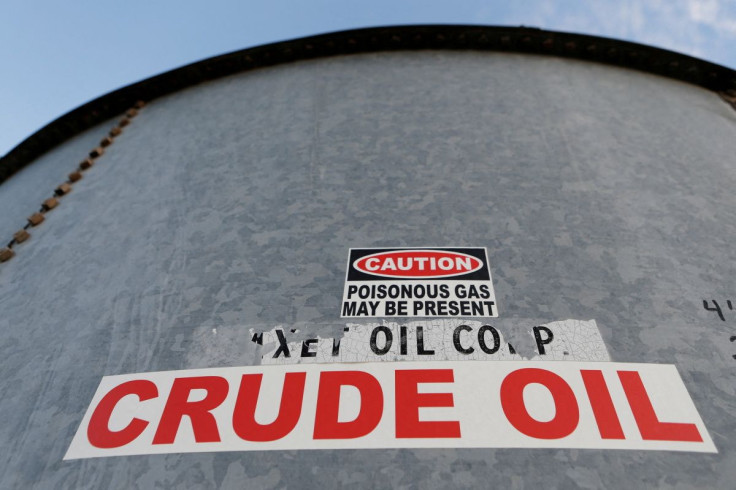Oil Falls On China Demand Worries, Possible EU Ban On Russia Oil Eyed

Oil prices slipped on Monday, along with stock markets in Asia, sparked by weak China data and fears a global recession could dampen oil demand, with investors eying European Union talks on a Russian oil embargo that could tighten global supplies.
Brent crude lost 41 cents, or 0.4%, to $111.98 a barrel by 0603 GMT.
U.S. West Texas Intermediate crude was at $109.24 a barrel, down 53 cents, or 0.5%. Both contracts briefly turned positive after falling more than $1 earlier in the session.
"The broader risk-off sentiment sparked by the recession fears, and China's lockdowns are the major factors that pressure the oil price," CMC Markets analyst Tina Teng said.
Global financial markets have also been spooked by concerns over interest rate hikes and recession worries as tighter and wider COVID-19 lockdowns in China led to slower export growth in the world's No. 2 economy in April.
Crude imports by China, the world's top oil importer, rose nearly 7% in April from a year earlier although imports for the first four months fell 4.8% on year.
A price cut by Saudi Arabia also reflected worries over global oil demand, Teng said.
Saudi Arabia, world's top oil exporter, lowered crude prices for Asia and Europe for June on Sunday.
EU RUSSIA OIL EMBARGO
Last week, the European Commission proposed a phased embargo on Russian oil as part of its toughest-yet package of sanctions over the conflict in Ukraine, boosting Brent and WTI prices for the second straight week. However, the proposal requires a unanimous vote among EU members this week.
The EU proposal was followed by a pledge by G7 nations on Sunday to ban or phase out Russian oil imports. Washington also imposed new sanctions against Gazprombank executives and other businesses.
Japan, part of G7 and one of the world's top five crude importers, will ban Russian crude imports "in principle", Prime Minister Fumio Kishida said on Sunday.
"It seems inevitable that both the EU and Japan will be competing for more non-Russia supplies in the future, and this is underpinning prices," said Jeffrey Halley, OANDA's senior analyst, in a note.
Bulgaria's Deputy Prime Minister, however, said on Sunday that his country would veto EU oil sanctions on Russia if it does not get a derogation from the proposed ban.
"The talks will continue tomorrow, on Tuesday too, a meeting of the leaders may be needed to conclude them. Our position is very clear. If there be a derogation for some of the countries, we want to get a derogation too," Vassilev told national BNT television.
Bulgaria had earlier said it would seek an exemption from the proposed Russian oil ban if such opt-outs were allowed, but it was not clear if it was seeking a full exemption or a delay similar to the one proposed on Friday for Hungary, Slovakia and the Czech Republic.
© Copyright Thomson Reuters 2024. All rights reserved.




















